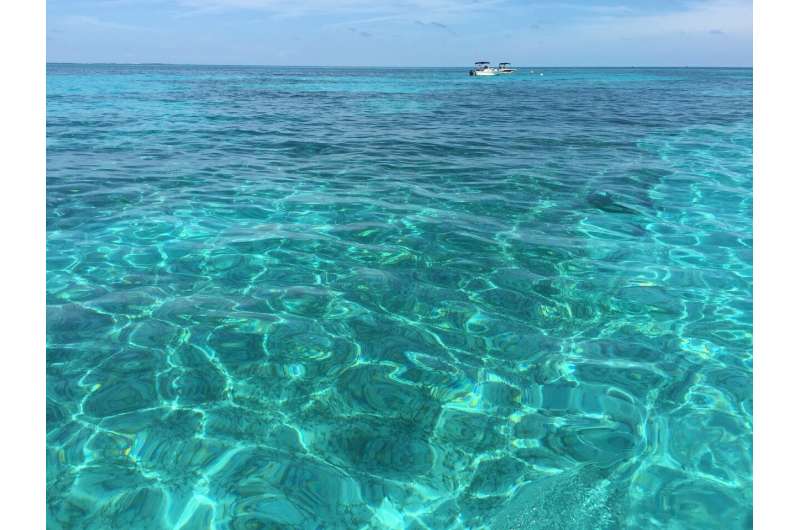
An unprecedented rise in ocean temperatures off the coast of Florida early in the summer made headlines as it caused countless dead fish to wash ashore. But the impact had an even wider reach than was initially evident.
Between 90% and 95% of corals they surveyed at 76 sites across the Keys and Dry Tortugas over the span of a week showed signs of extreme bleaching, said Shedd research biologist Ross Cunning. Some coral species, such as endangered branching corals like staghorn and elkhorn, were nearly all dead.
“We’re pulling up to these reefs on the boat and you could see, before even getting in the water, the stark, bright white coloration of these bleached corals,” Cunning said. “It was unmistakable. So, we knew before even getting in the water how severe these impacts were.”
The further south researchers went, the worse the bleaching was. Throughout the Dry Tortugas, they dove as deep as 60 feet, hoping for a greater chance of encountering survivors. But they did not find a single viable staghorn coral.
Researchers are calling it the “worst coral bleaching event that Florida has ever experienced.”
“Bleaching is not inherently bad as a stress response,” Matsuda said. The researchers explained corals expel algae in response to seasonal rises in temperatures, so even if a coral is bleached it doesn’t necessarily mean it’s dead.
It becomes a problem, however, when the bleaching lasts a few weeks too long and the corals continue to starve. “They will then die,” Cunning said.
“It would be like a forest with no trees. You have no trees, you have no forests; there’s no habitat for all the animals that live in the forest. It’s the exact same thing with coral reefs,” Cunning said.
“If you have no corals, then you have no coral reefs. So as the corals die off, then their skeletons will, over long periods of time, start to break down like dead trees eventually fall over. And you lose that structure, you lose that habitat, and that’s when we’ll start to see the losses of all these other species that no longer have habitat.”
“On the one hand, we all knew that this was coming. This was not really a surprise, because we’ve known for a very long time what hot water temperatures do to corals,” Cunning said. “And we’ve known for a very long time that we are causing (the) warming of our planet and our oceans. So in that sense, it’s not a surprise, but it was still a shock to witness and just heartbreaking to see.”
“There are no reefs anywhere in the world that are immune to, or protected from, the impacts of global climate change,” Cunning said.
“We cannot engineer our way out of this problem—for coral reefs or for the rest of our planet, for that matter. We must stop emissions and (the) further warming of our planet. And that needs to happen now, and at a global scale. So far we have not seen the level of action to address climate change that we need to ensure the survival of reefs and the rest of our planet.”